It seems we can’t find what you’re looking for. Perhaps searching can help.
Sign Up for newsletter!
Subscribe to get the latest eBook!
Hotline






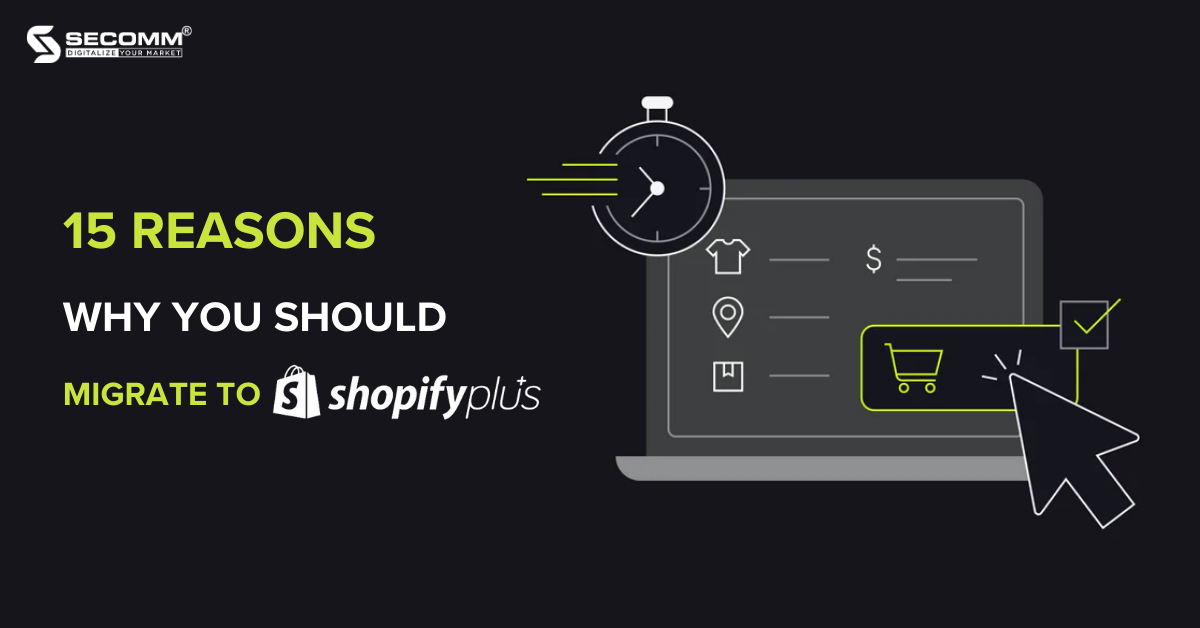
According to the Deloitte 2022 Retail Industry Outlook, up to 67% of businesses acknowledge that the eCommerce platform is their top investment priority due to issues they face with deploying outdated platforms.
Plus, a survey by Digital Commerce 360 revealed that about 27% of businesses are trying to switch their eCommerce platforms despite the associated costs.
Among the myriad of leading platforms today, Shopify Plus stands out as a perfect choice for businesses when deciding to re-platform.
This article will show you 15 reasons why you should migrate to Shopify Plus. Why the platform gains the attention of business leaders and how it can be the key to your development and success in today’s eCommerce landscape.
It is a premium solution of the popular eCommerce platform – Shopify. This version is specifically designed to meet the needs of large businesses with a high investment budget for eCommerce.
It offers flexibility, scalability, and integration, not only helping efficiently build and run an eCommerce website but also providing advanced tools and features to optimize the customer shopping experience.
Here are 15 notable advantages that the platform offers for your business growth, laying the groundwork for you to consider migrating to Shopify Plus.
The dashboard interface is designed to be intuitive and user-friendly, catering to end-users and administrators who directly manage the Shopify store. The intuitive interface allows you to concentrate on developing business strategies and enhancing the customer experience, minimizing the learning curve on how to use the system.
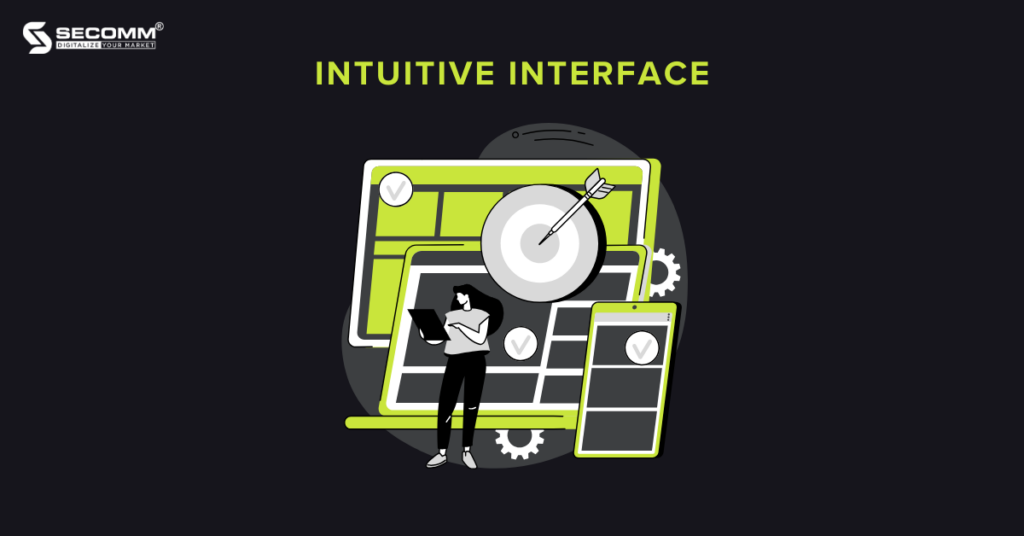
The second reason to migrate to Shopify Plus is the transparency in estimating and managing deployment costs. Typically, when using this platform, you may consider platform fees, transaction fees, app and add-on fees.
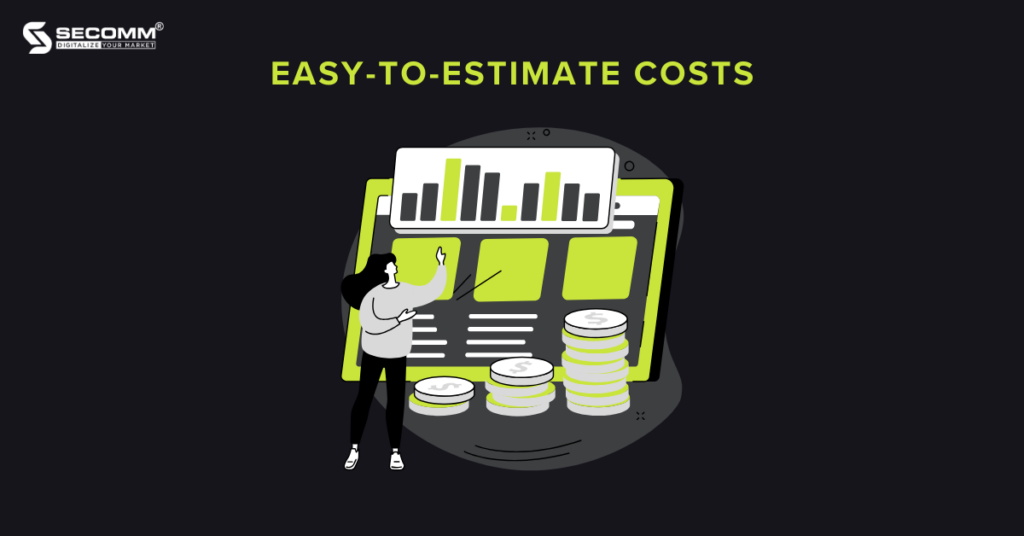
The Shopify Plus pricing system is clear and understandable, helping you know all the fees you need to pay monthly. This helps financial planning, avoiding unexpected fees during the deployment process.
Plus, if you partner with highly specialized technical development teams like SECOMM, we’ll conduct a detailed analysis and propose a phased deployment plan for the Shopify Plus eCommerce website. This approach allows you to gain clarity on how your system will be deployed at each stage, facilitating easy adjustments and flexible optimization of financial resources.
Another advantage of Shopify Plus is the automation feature. The platform provides two exclusive tools to help you facilitate this process: Shopify Flow and LaunchPad.
These automation tools help enhance efficiency and save time by streamlining various processes, allowing you to focus on strategic aspects of your operations.
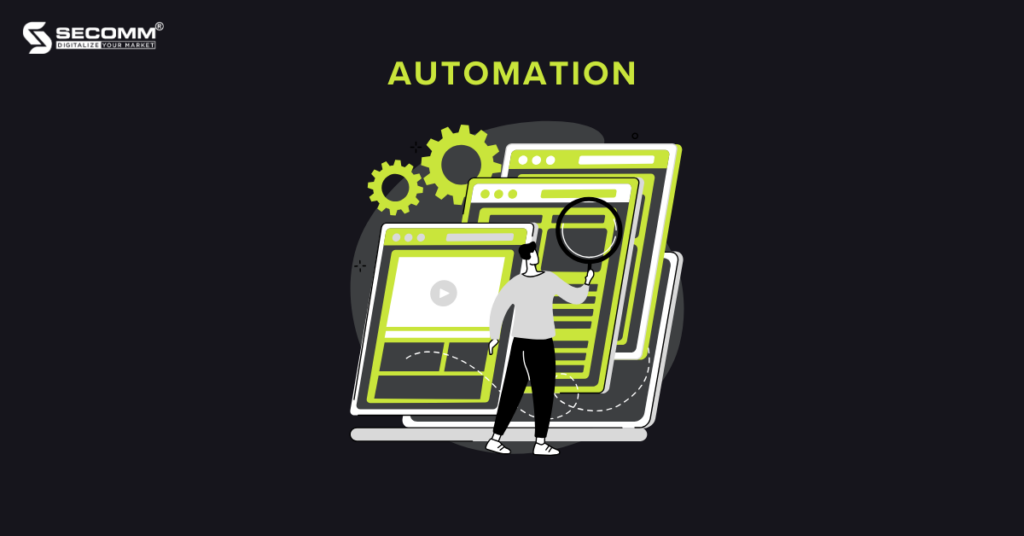
Shopify Plus allows you to reach a broader audience through various sales channels, spanning from offline to online, including leveraging social media for sales and implementing B2B business models.
Plus, you can integrate the Shopify POS solution into their offline stores to offer services such as BOPIS (Buy Online, Pick Up In-Store) and BORIS (Buy Online, Return In-Store). This allows customers to shop in the manner that suits them, combining both online and in-store shopping experiences.
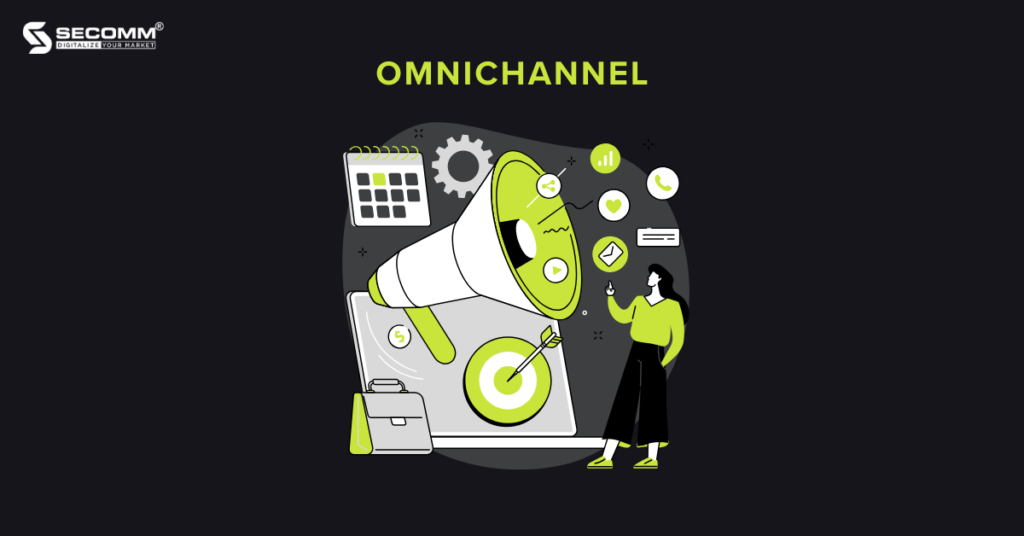
In 2021, Shopify introduced a comprehensive cross-border selling solution called Shopify Markets. With Shopify Markets, you can easily customize their stores for each specific target market. This includes setting prices, languages, payment methods, and delivery options to align with the preferences of local customers.
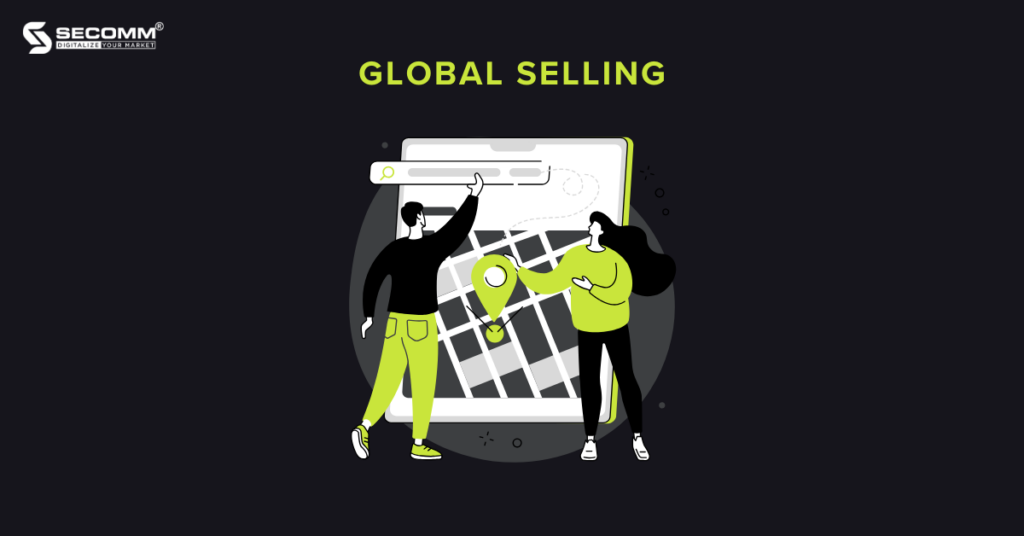
The robust customization is another reason for businesses to switch to Shopify Plus. This platform allows you to freely customize from the frontend to the backend without being constrained by any limits. In particular, you can easily customize the backend with Shopify Functions and Function APIs. Some use cases for Shopify Functions include:
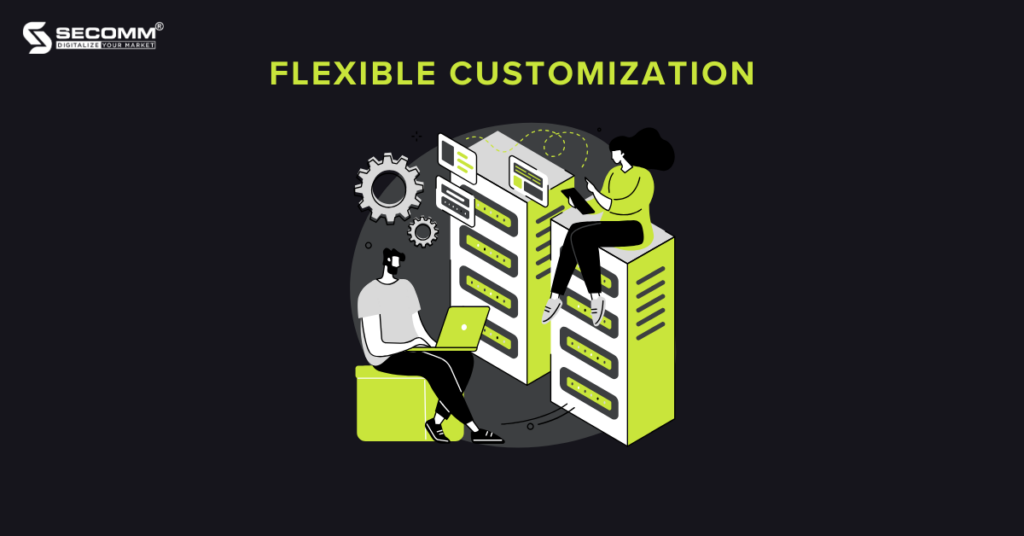
With the popularity of Shopify and Shopify Plus globally, it’s not surprising that Shopify owns a host of useful applications, some of which are specifically developed for businesses deploying Shopify Plus. Moreover, the ‘Plus’ provides diverse documentation and resources (Shopify Plus Certified App Program) for developers to create applications and extensions, contributing to the vast ecosystem of Shopify applications.
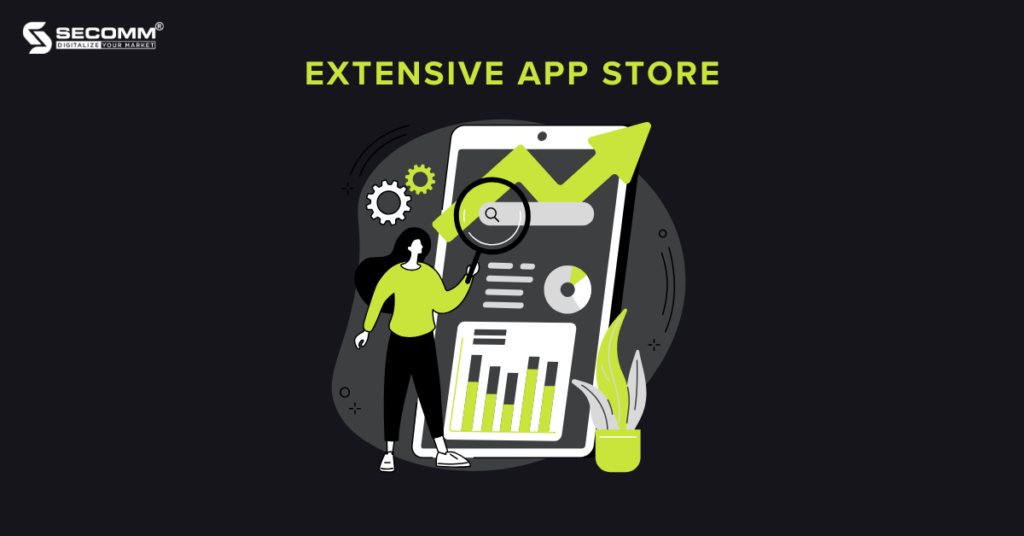
Beyond integrating with solutions within Shopify, you can also integrate with third-party systems such as:
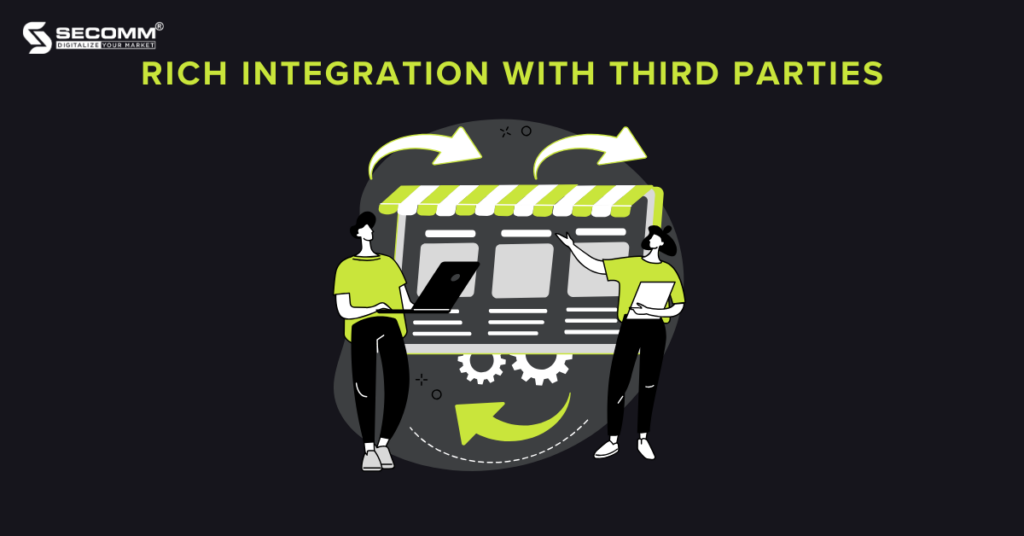
Shopify’s cloud infrastructure can cater to over 600,000 merchants and process speeds of up to 80,000 requests per second during peak periods. This system is built on a dedicated server cluster running Docker and utilizes Rails applications, alongside integrated additional features based on the AWS platform.
Therefore, Shopify Plus can provide powerful processing speed not only for the website but also during the checkout process. It can handle a massive number of visits while maintaining speed and ensuring a positive customer experience, processing over 10,000 orders per minute.
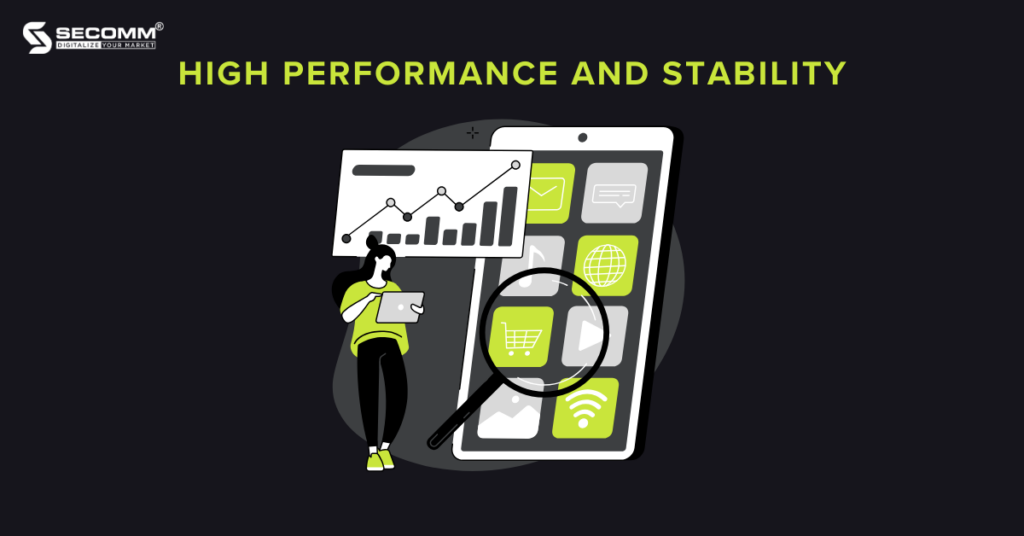
With unlimited bandwidth and flexible infrastructure, Shopify Plus can effortlessly scale to manage increased traffic during peak shopping seasons such as Black Friday, Cyber Monday, and Christmas. This enables you to handle high volumes of customers during peak times without concerns about technical issues or website disruptions.
The flexible customization of Shopify Plus also extends to providing maximum support for deploying Headless Commerce. Moreover, in 2021, the platform introduced the Hydrogen solution – an outstanding tech stack that can meet the highest requirements for building a Headless Commerce system.
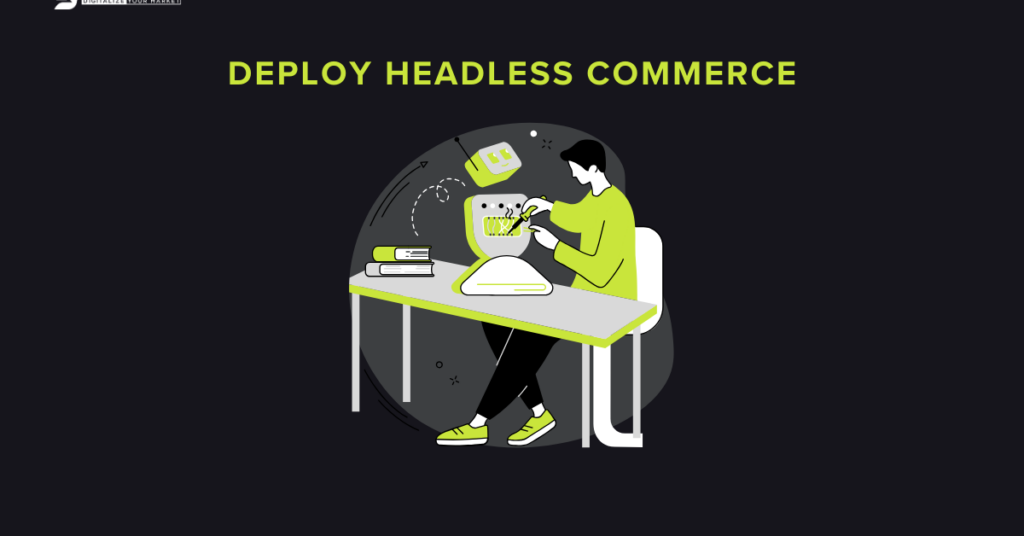
As the demand for flexibility and scalability continues to rise, alongside Headless Commerce, large businesses worldwide are increasingly focusing on the Composable Commerce model. Fortunately, Shopify is keenly attuned to customer needs and has recently introduced the Commerce Components by Shopify solution in early 2023.
As of the time of writing, Shopify stands as the first SaaS platform to provide a tech stack that can address nearly all the development needs of Composable Commerce.
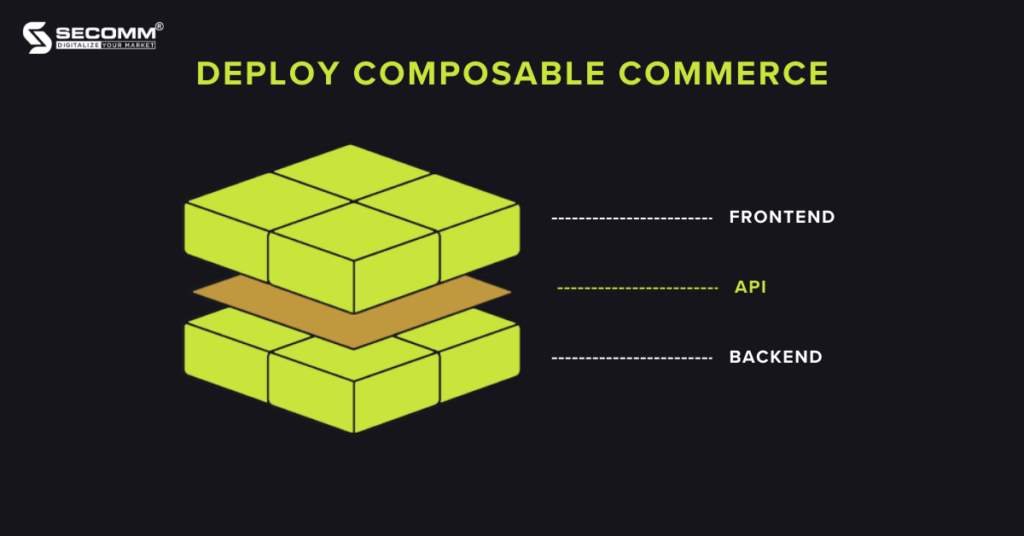
While you may require considerable time to tailor your Shopify Plus store to your specific needs, the nature of SaaS ensures that the go-live process for Shopify Plus remains quicker compared to open-source platforms like Magento.
On average, the deployment and go-live time for the Shopify Plus platform is around 2-5 months, whereas with Magento, businesses take from 6-12 months to deploy and go live.
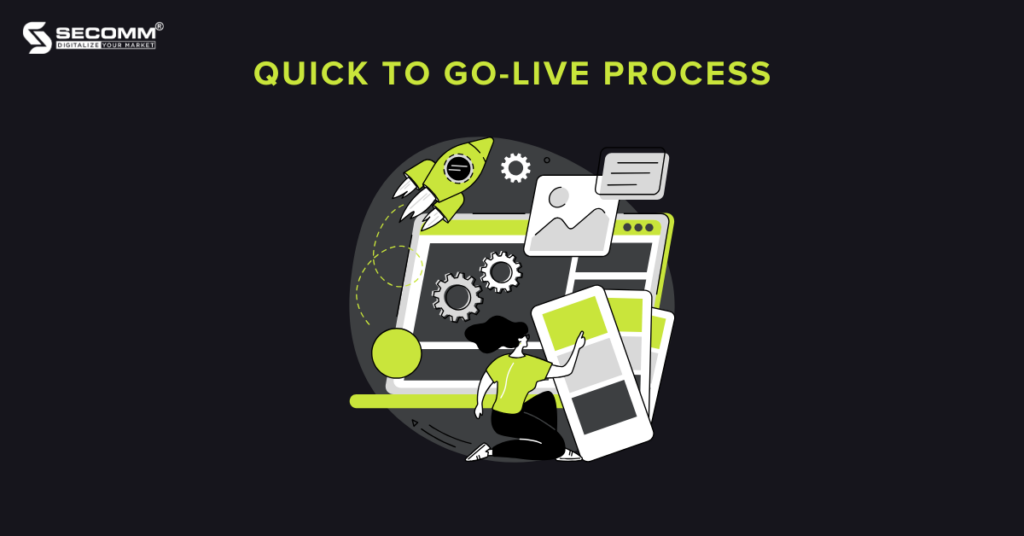
Shopify Plus provides a range of security measures and features to ensure that business data, customer information, and payment transactions are safeguarded to the highest extent possible. This includes:
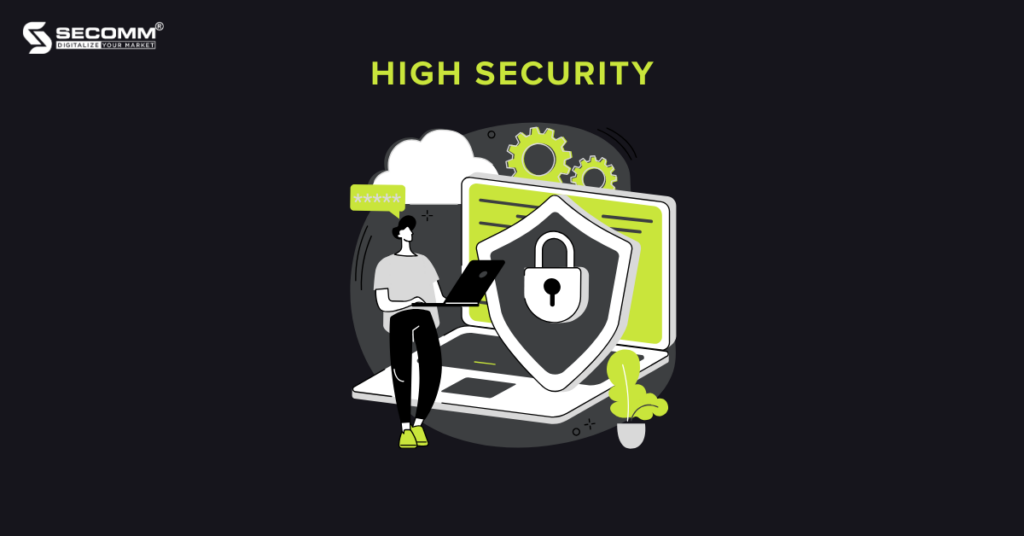
Similar to other eCommerce platforms, Shopify Plus provides businesses with 24/7 support through hotlines, emails, and video calls in various languages. Additionally, this platform offers instructional materials, API documentation, and the Shopify Plus Merchant Success program where businesses can access:
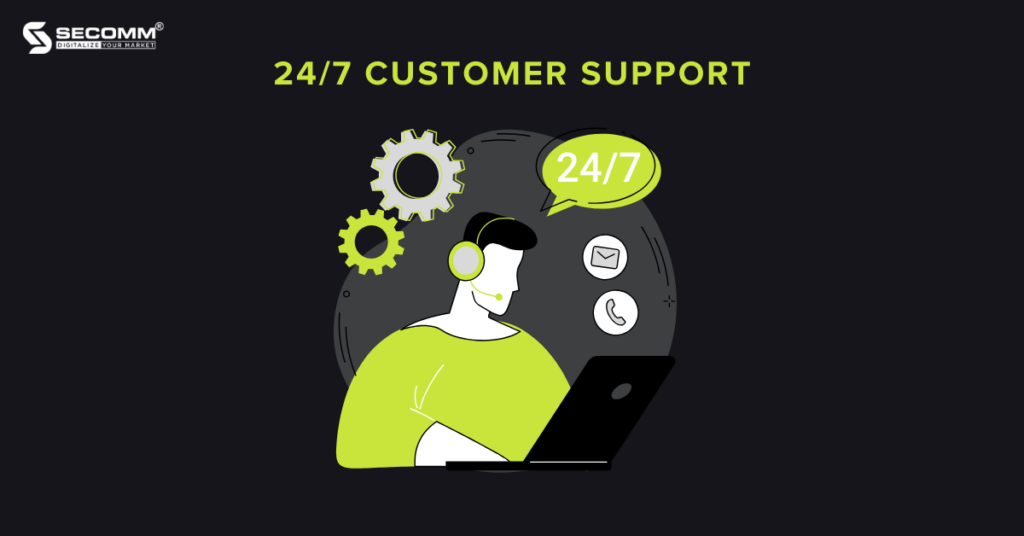
Shopify Plus has a vast and diverse user ecosystem, including businesses, developers, and marketing experts. With numerous leading global businesses choosing Shopify Plus as a key tool to drive their growth and success, it is undoubtedly a testament to the excellence of this platform.
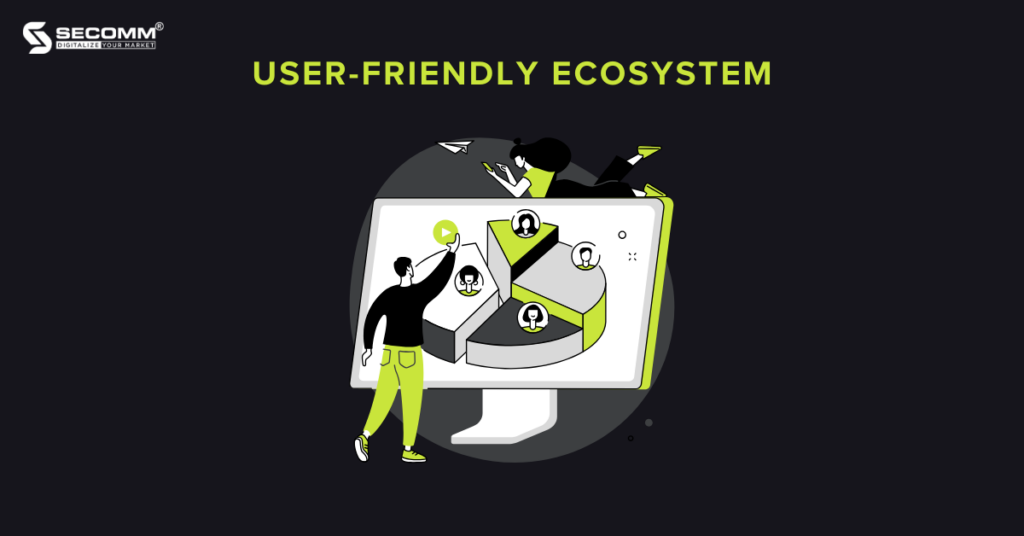
Renowned names such as Gymshark, Glossier, MZ Wallace, and Emma Bridgewater have leveraged the power of Shopify Plus to create customized shopping experiences, expand sales volumes, and reach a broader customer base. Their presence has added another reason encouraging you to switch to Shopify Plus.
With flexible customization, scalability, and support from a reliable team of experts, the decision to deploy eCommerce with Shopify Plus or migrate from another platform to Shopify Plus has been right for sustained and competitive growth in the eCommerce landscape.
Contact SECOMM or call the hotline at 028 7108 9908 for advice and support to swiftly and effectively switch to Shopify Plus.
 2
2
 6,849
6,849
 0
0
 1
1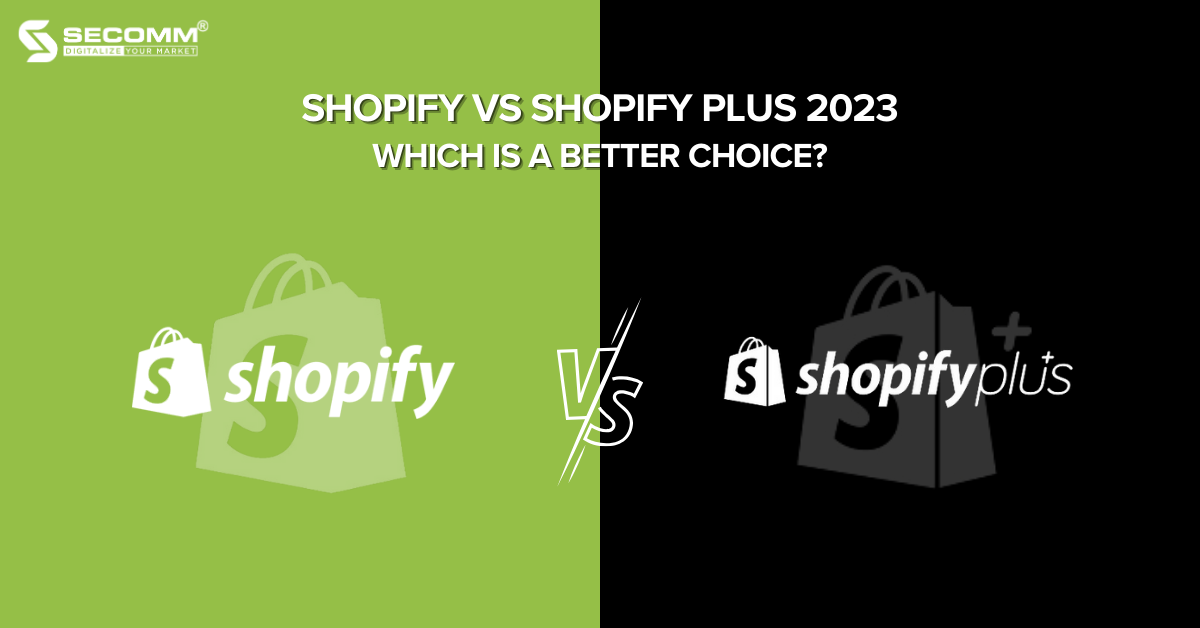
Shopify and Shopify Plus are two leading eCommerce platforms globally, used by millions of businesses to deploy eCommerce websites. The Shopify platform is designed for small and medium-sized enterprises, providing basic, user-friendly features for building and managing eCommerce websites. According to Builtwith, over 4 million active Shopify stores are currently worldwide.
On the other hand, Shopify Plus is specifically crafted for large-scale enterprises, offering advanced features, customization options, and flexible scalability. Builtwith statistics indicate that there are over 44 thousand active Shopify Plus websites globally.
What are the differences between Shopify and Shopify Plus? Which platform should you choose to build your eCommerce websites? This article will focus on clarifying the differences between Shopify and Shopify Plus in three aspects: cost, features, and support capabilities, to help you choose the most suitable platform for your needs and goals.
The first distinction and crucial criterion to consider between Shopify and Shopify Plus are the license fees and transaction fees. Shopify and Shopify Plus offer different solution packages with varying pricing to suit businesses with different budgets and scales.
Shopify offers three main pricing plans: Basic, Shopify, and Advanced, priced at $25, $65, and $399 per month, respectively. Also, Shopify has a special solution package called Shopify Starter at $5/month, enabling you to sell on social media and chat apps.
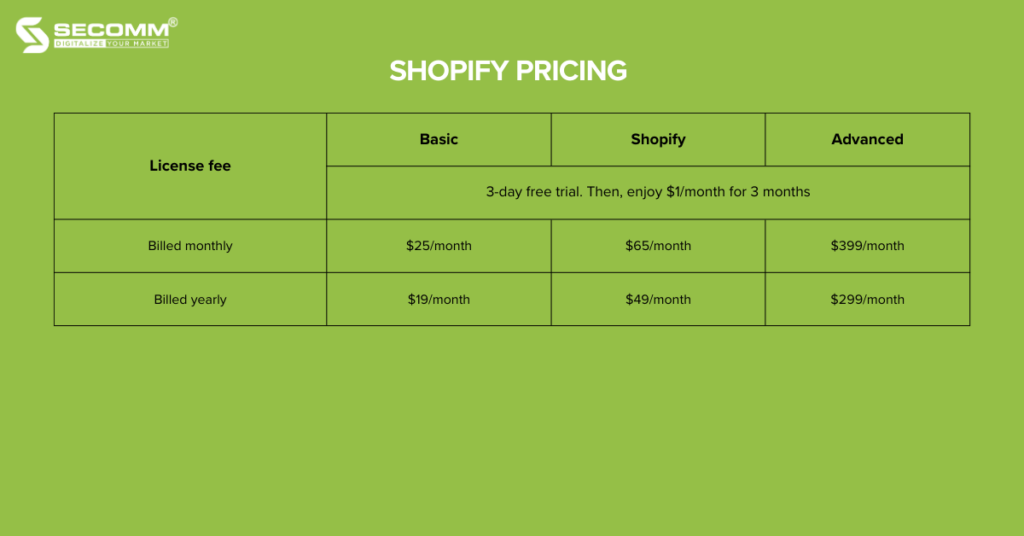
*Note: The mentioned fees apply to the Vietnamese market, and platform license fees may vary depending on the region or country.
Beyond the license fees, you also need to consider the transaction fee when using different payment methods. Shopify offers its payment method called Shopify Payments, allowing you to effortlessly accept all major payment methods on your eCommerce website.
If using Shopify Payments, you don’t have to pay any transaction fee to Shopify.
On the other hand, If you don’t use Shopify Payments and select one of many third-party payment service providers supported by Shopify, you’ll pay transaction fees of 2%, 1%, and 0,5% for the Basic, Shopify, and Advanced plans, respectively.
Since Shopify Plus is designed for large businesses, the pricing structure for the Shopify Plus package is variable and depends on the individual deployment requirements and revenue of each business. According to Shopify, the initial cost for using Shopify Plus is $2,000/month, with subsequent increases based on monthly revenue.
Specifically, when the revenue of a Shopify Plus store reaches $800,000/month, the platform will apply a charge of 0.25% of the monthly revenue. It’s worth noting that the fee will not exceed $40,000/month and $480,000/year.
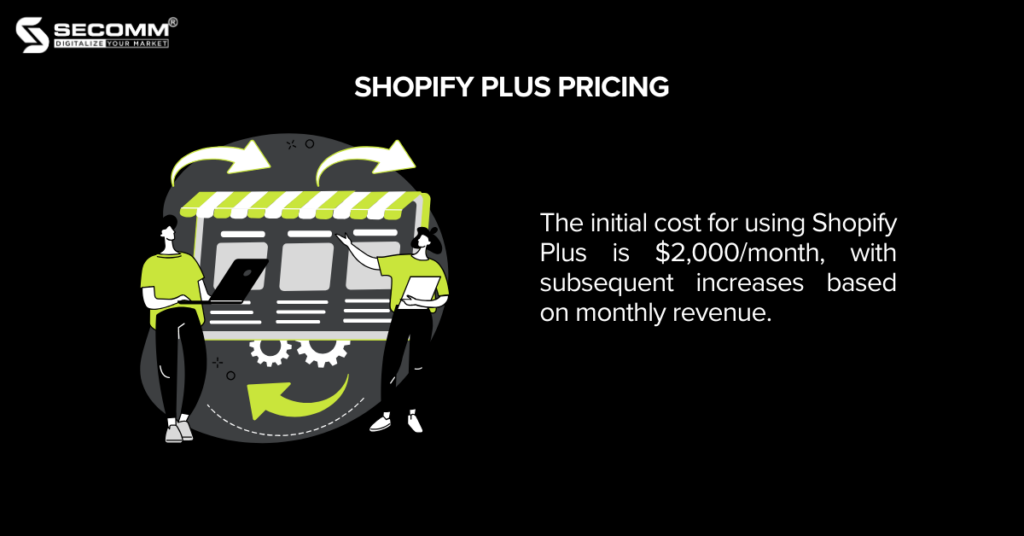
Similar to the Shopify pricing plans, Shopify Plus supports both Shopify Payments and third-party payment service providers. However, the transaction fees associated with Shopify Plus are lower compared to regular Shopify plans. If you don’t use Shopify Payments, you’ll incur a transaction fee of 0.15% on each transaction.
When it comes to features, Shopify Plus excels by providing a range of advanced features for you to customize your eCommerce websites, aiming to deliver a unique experience for customers.
Related Reading: 6 key Shopify Plus features
Most Shopify businesses typically utilize either the available free or paid themes on Shopify, encountering several limitations when customizing the checkout or cart pages. However, with the implementation of Shopify Plus, you can leverage Shopify Scripts to tailor small code segments, enabling the creation of a personalized shopping experience for customers at the cart and checkout pages.
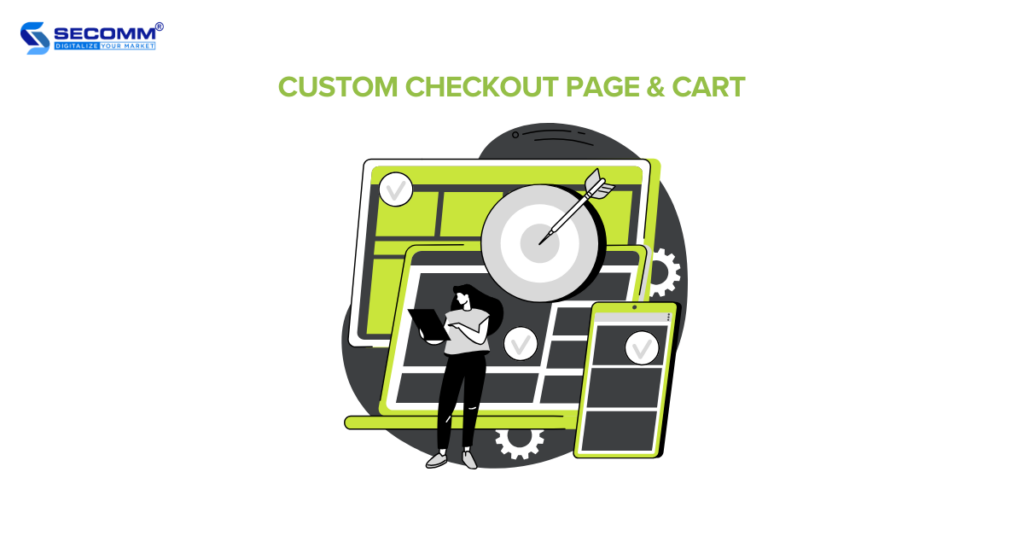
The Shopify pricing plans provide a set of built features for businesses to automate eCommerce and marketing operations. On the other hand, with the deployment of Shopify Plus, businesses can utilize specialized tools to automate eCommerce processes, such as:
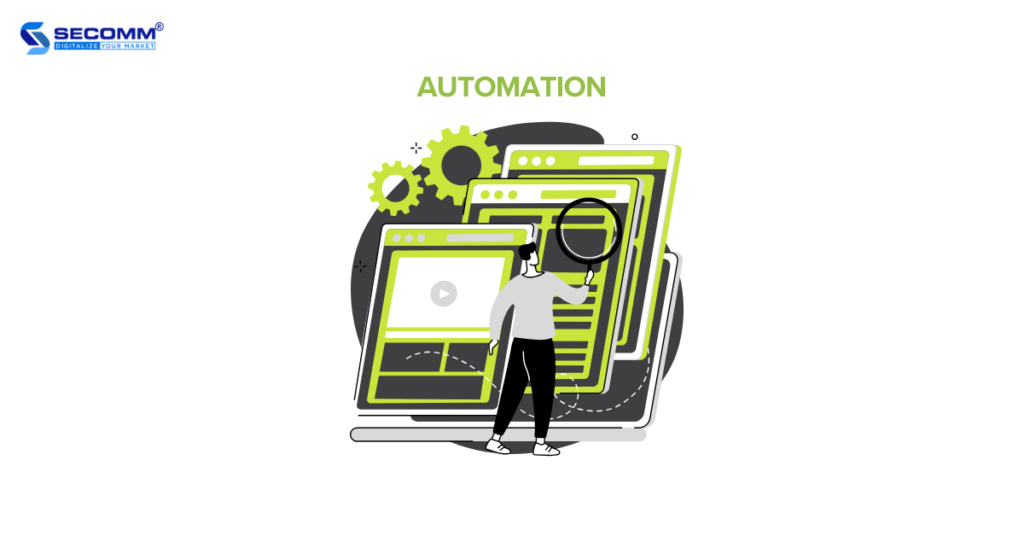
For all Shopify businesses, the Shopify POS feature is included in the standard service package known as POS Lite, but it has limitations in terms of features and POS usage locations. To unlock more advanced features and extend the POS capabilities, Shopify businesses need to upgrade to the POS Pro package, priced at $89 per month per location.
On the other hand, Shopify Plus businesses enjoy free access to POS Pro for their initial 20 locations. This implies that businesses implementing Shopify Plus can leverage advanced POS features, including BOPIS deployment, unlimited user accounts, omnichannel selling, inventory management, and more.
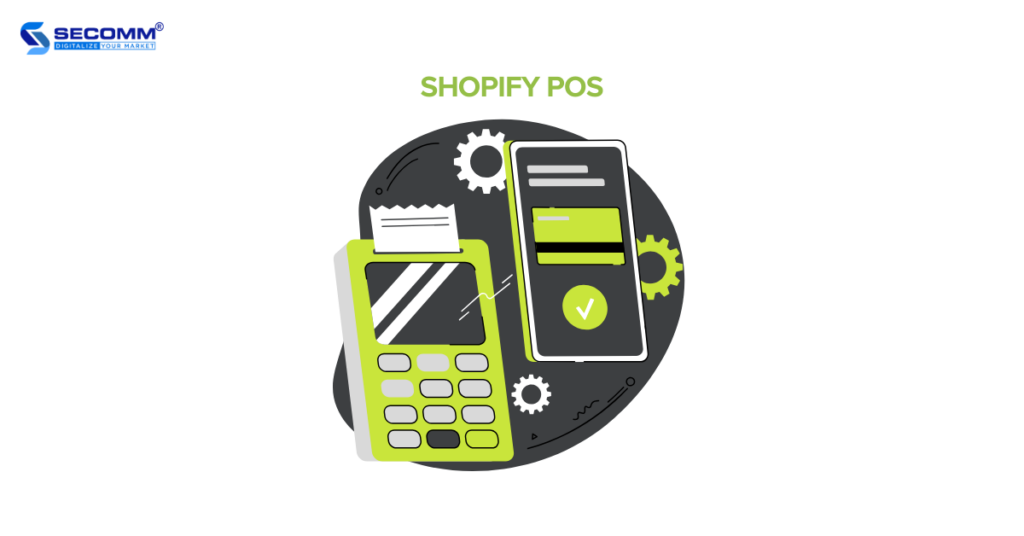
This feature is specifically designed for Shopify Plus businesses, facilitating B2B transactions directly through the eCommerce website without reliance on third-party apps or alternative solutions. You can set up catalogs, payment terms, and company profiles, and customize prices specifically for B2B customers.
This provides the flexibility to develop a website that serves B2B and B2C customers or craft a specialized platform dedicated to B2B clients.
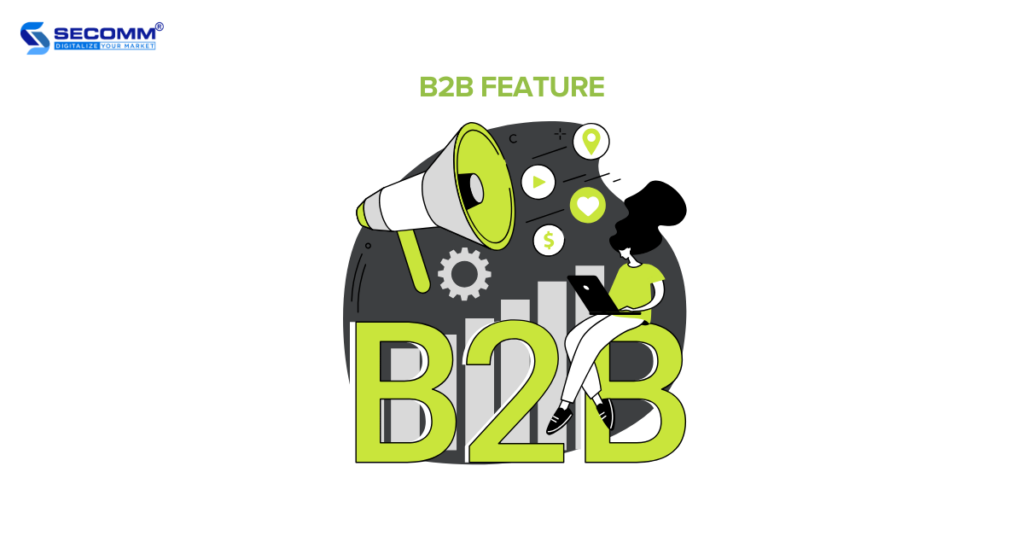
The wholesale feature is specifically designed for Shopify Plus merchants. This feature allows you to customize the wholesale website interface differently from the regular eCommerce site, adjust pricing, and establish a distinct ordering process specifically for wholesale customers. You can also choose to showcase products intended for wholesale transactions exclusively on the Shopify Plus wholesale website.
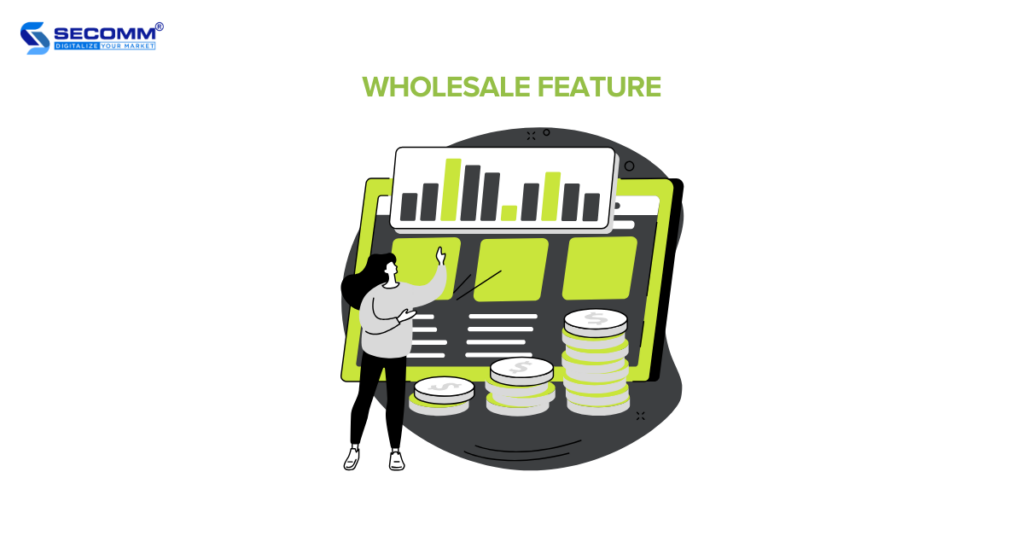
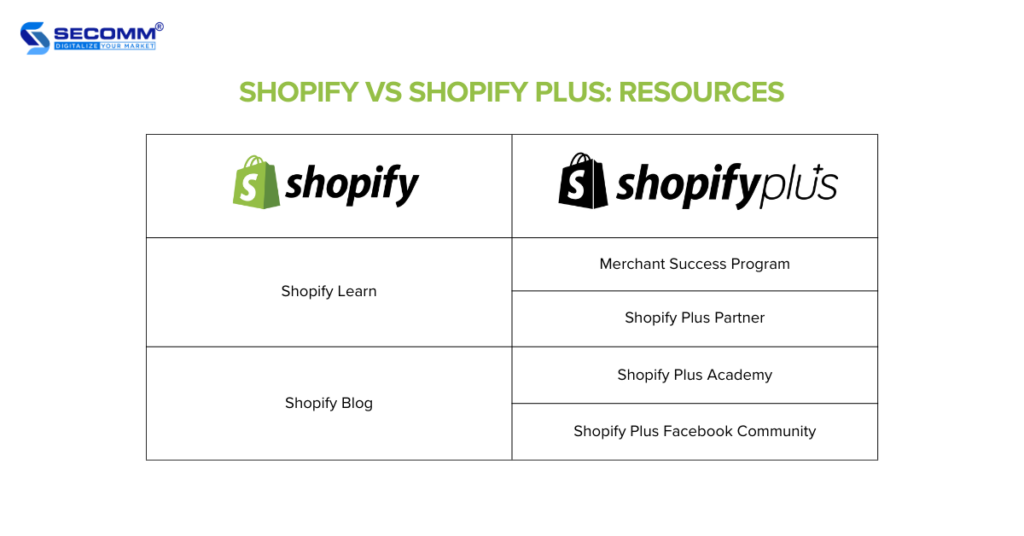
For Shopify businesses, they can access support 24/7 throughout the entire process of building and advancing their eCommerce website through channels like the hotline, email, or chatbox. Additionally, Shopify provides resources for businesses to enhance their eCommerce operations, including:
In addition to the support services available through the hotline, email, or chatbox, businesses utilizing Shopify Plus enjoy enhanced access to educational resources and support:
Here is an overview of the significant differences between Shopify and Shopify Plus platforms. The decision on which platform is most suitable depends on each business’s scale and deployment requirements.
For startups or small to medium-sized enterprises with minimal customization requirements and a desire for quick product launches, regular Shopify solutions may be more suitable.
On the other hand, large-scale enterprises with high integration and customization needs should prioritize Shopify Plus.
With years of experience deploying Shopify Plus eCommerce websites for leading businesses such as Vinamilk and Suzuverse, SECOMM boasts a professional team with exceptional technical skills and in-depth knowledge of the Shopify Plus platform.
Contact SECOMM or call the hotline at 028 7108 9908 to deploy Shopify Plus today!
 2
2
 6,225
6,225
 0
0
 1
1Subscribe to get the latest eBook!
Hotline